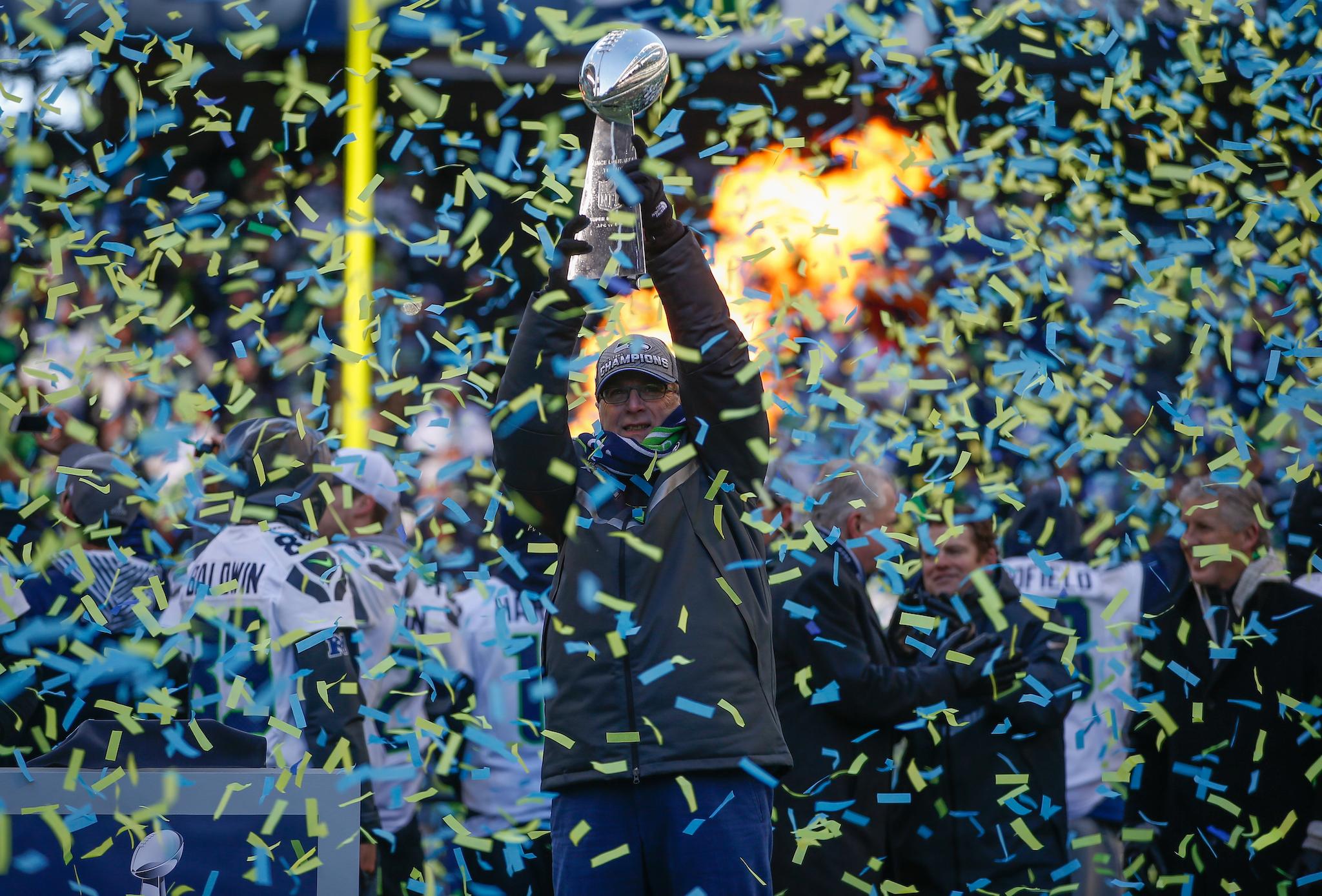Paul Allen death: The Microsoft founder who was a space pioneer, football lover and guitar player 'as good as Hendrix'
'Personal computing would not have existed without' Allen, Bill Gates said, but that was just one of his many achievements

Your support helps us to tell the story
From reproductive rights to climate change to Big Tech, The Independent is on the ground when the story is developing. Whether it's investigating the financials of Elon Musk's pro-Trump PAC or producing our latest documentary, 'The A Word', which shines a light on the American women fighting for reproductive rights, we know how important it is to parse out the facts from the messaging.
At such a critical moment in US history, we need reporters on the ground. Your donation allows us to keep sending journalists to speak to both sides of the story.
The Independent is trusted by Americans across the entire political spectrum. And unlike many other quality news outlets, we choose not to lock Americans out of our reporting and analysis with paywalls. We believe quality journalism should be available to everyone, paid for by those who can afford it.
Your support makes all the difference.Paul Allen found fame and immense fortune through his work building Microsoft. But his passions were as broad as they were spectacular: he had an enthusiasm for everything from rocket ships to rock'n'roll.
The Microsoft co-founder died in Seattle this week from complications of non-Hodgkin's lymphoma, according to his company Vulcan Inc. He was 65.
Allen came to fame and fortune as a consequence of his work with Microsoft. He gave the company its name and its start, and spawned an entire industry that changed the world: "Personal computing would not have existed without him," Bill Gates said in a statement.
The partnership with Bill Gates that would go on to found perhaps the most successful technology company in history began when the pair met at a private school as children. He helped develop the company's innovative technologies and worked there until 1983, when he resigned after being diagnosed with Hodgkin's disease, retaining a lifelong connection with the company and with Gates.
But it was his variety of other interests that made him a public figure, and continued to fascinate and help people years after he had left the company he helped found.
Perhaps most famous among them is his interest in football, both in the American and British meanings of the word. He owned both the Seattle Seahawks – celebrating their 2014 Super Bowl win – and the Sounders, a Major League Soccer team. He would often be seen watching games and speaking to players in their changing rooms.
Alongside that, he continued to retain an interest in innovation, watching and investing in everything from artificial intelligence and nuclear-fusion power to rocket ships. He funded Burt Rutan's SpaceShipOne, which became the first privately developed spacecraft to carry a person to space, and a successor to that technology is now used by Virgin Galactic for its mission to launch private space travel.
But most surprising of all his interests was perhaps his interest in rock guitar – and his incredible ability to play it.
Legendary music producer Quincy Jones, for instance, said that Allen "sings and plays just like Hendrix". In an interview in which he criticised even The Beatles for being the "worst musicians in the world", he heaped praise on the Microsoft founder's skills.
"I went on a trip on his yacht, and he had David Crosby, Joe Walsh, Sean Lennon — all those crazy motherf***ers. Then on the last two days, Stevie Wonder came on with his band and made Paul come up and play with him — he’s good, man."
Allen himself was more modest about his achievements. In his memoir he wrote that he had become obsessed with Hendrix, working out how to play his songs, and that at a concert in Dallas he played the song Purple Haze and brought the crowd to their feet. "I knew I’d never play it the way Jimi did, but I was satisfied," he wrote.
As well as his playing, Allen channelled his interest in pop culture into the investments he would make after Microsoft. He launched the the bright metallic Museum of Pop Culture in Seattle, designed by Frank Gehry.
Join our commenting forum
Join thought-provoking conversations, follow other Independent readers and see their replies
Comments